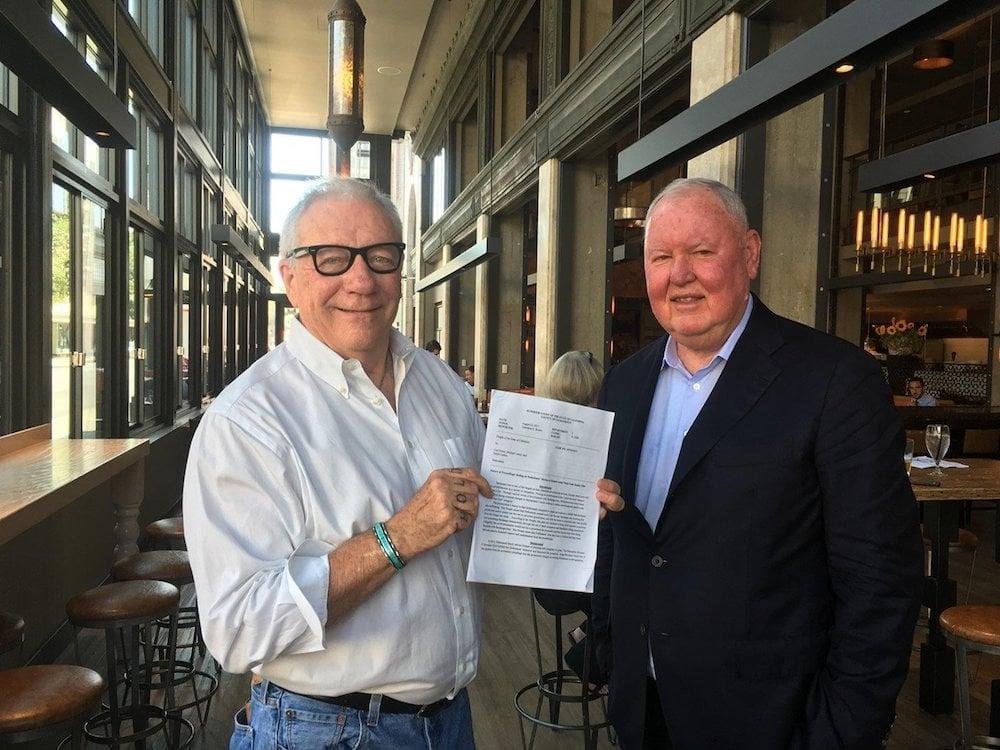Business
Backpage Co-Founder Michael Lacey Sentenced to 5 Years for Money Laundering Scheme

Michael Lacey, co-founder and former owner of the notorious Backpage.com, has been sentenced to five years in federal prison for his involvement with the classified advertising site, which hosted thousands of prostitution ads, including those featuring underage girls. This sentence was delivered by U.S. District Judge Diane Humetewa during a hearing on Wednesday morning.
Alongside Lacey, former executives Scott Spear and John Brunst received 10-year prison sentences, followed by three years of probation. Judge Humetewa recommended that both men serve their sentences in a low-security facility in Arizona.
Additionally, Lacey was ordered to pay $3 million in criminal fines. His conviction came last November on a single count of international concealment money laundering, although jurors were deadlocked on other charges related to prostitution and money laundering. Judge Humetewa emphasized the extensive evidence of ongoing underage sex trafficking on the platform, indicating Lacey had been aware of it.
“You did nothing in the face of all of this. You held fast,” she asserted, referring to Lacey’s tattoo reading “Hold Fast.” She further criticized his lack of acknowledgment regarding the serious issues connected to Backpage, suggesting that realization could have changed the outcome.
The court denied the defendants’ requests for release pending appeal, requiring them to report to a U.S. Marshall’s office by noon on September 11. During the hearing, Lacey’s defense attorney, Paul Cambria, urged leniency, arguing that a five-year sentence equated to a life sentence for the 76-year-old Lacey.
Victim Destiny Ortiz, sold for sex via Backpage at 14, expressed her view on the matter, stating, “Their actions have affected me and young girls around the country. It is very important to me that the men responsible for creating Backpage spend the rest of their lives in jail.”
The emotional testimonies included one from a mother whose daughter, also a victim, was tragically killed by her trafficker in 2016. Yvonne Ambrose poignantly told the defendants, “These are children whose lives you ruined due to caring nothing of humanity.”
Defense attorney Cambria acknowledged the pain experienced by victims but insisted that Lacey cannot be held accountable for individual cases of trafficking. He argued for targeting those actually facilitating the exploitation.
Backpage was launched in 2004 as a competitor to Craigslist, generating most of its revenue from adult escort advertisements, which frequently involved exploitation. Throughout the trial, Lacey’s lawyers claimed that Backpage made genuine efforts to combat illegal activities, an assertion prosecutors disputed. They argued that Lacey and his executives only acted to maintain plausible deniability while profiting from illicit activities.
This case has ignited significant discussions about internet service providers’ responsibilities regarding third-party content. In a written statement, Lacey denied awareness of transactions on Backpage, emphasizing his commitments in managing several newsrooms.
Federal prosecutors countered Lacey’s claims, asserting that he opted for profit over journalistic integrity. Prosecutor Austin Berry reiterated that for 14 years, the defendants disregarded numerous warnings from various sectors about the pervasive issues on their platform.
Amid the developments, Lacey’s money laundering conviction stemmed from a $16.5 million transaction to a Hungarian bank, allegedly meant to obscure illegal earnings from Backpage. Although the jury was unable to reach a verdict on numerous other charges, Judge Humetewa acquitted Lacey of several counts linked to ads posted after he had sold the company. Further trials regarding the unresolved counts are anticipated but may take several years to proceed.
The legal battles for Lacey, Spear, and Brunst continue, highlighting ongoing concerns over accountability in the digital marketplace as they remain embroiled in a complex web of legal issues.


















